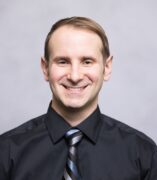
Mateusz Wietecha
Assistant Professor
Wietecha, Mateusz
Oral Biology
Contact
Building & Room:
Room 437
Address:
801 S Paulina Street, Chicago, IL 60612
Email:
Related Sites:
About
Dr. Wietecha was appointed Assistant Professor of the Department of Oral Biology at the UIC College of Dentistry in September 2022. His research focuses on the cellular and molecular parallels between wound healing and chronic disease progression. He graduated Summa Cum Laude from the University of Illinois Chicago (UIC) in 2008 with a bachelor’s degree in Biochemistry, where he was also part of the Honors College and the Guaranteed Professional Program Admissions (GPPA) for Dentistry. From 2008 to 2015, he was among the first candidates to complete the DMD/PhD dual-degree Multidisciplinary Oral Science Training (MOST) Program at the UIC College of Dentistry. After the DMD/Ph.D., Dr. Wietecha moved to Switzerland, where he spent several years as a post-doctoral researcher (2015-2021) and senior research scientist (2021-2022) at the Institute of Molecular Health Sciences of the Swiss Federal Institute of Technology in Zürich (ETH Zurich). While at ETH, his research was performed in the context of the SKINTEGRITY.CH national consortium.
Selected Publications
- Pudmed
- Google Scholar
- “Phase-specific signatures of wound fibroblasts and matrix patterns define cancer-associated fibroblast subtypes.” Wietecha MS, Lauenstein D, Cangkrama M, Seiler S, Jin J, Goppelt A, Claassen M, Levesque MP, Dummer R, Werner S. Matrix Biology. 2023 May;119:19-56. doi: 10.1016/j.matbio.2023.03.003. Epub 2023 Mar 11. PubMed PMID: 36914141.
- “Activin-mediated alterations of the fibroblast transcriptome and matrisome control the biomechanical properties of skin wounds. Wietecha MS, Pensalfini M, Cangkrama M, Müller B, Jin J, Brinckmann J, Mazza E, Werner S. Nature Communications. 2020 May 25;11(1):2604. doi: 10.1038/s41467-020-16409-z. PubMed PMID: 32451392; PubMed Central PMCID: PMC7248062
- “A paracrine activin A-mDia2 axis promotes squamous carcinogenesis via fibroblast reprogramming Cangkrama M, Wietecha MS, Mathis N, Okumura R, Ferrarese L, Al-Nuaimi D, Antsiferova M, Dummer R, Innocenti M, Werner S. EMBO Molecular Medicine. 2020 Apr 7;12(4):e11466. doi: 10.15252/emmm.201911466. Epub 2020 Mar 9. PubMed PMID: 32150356; PubMed Central PMCID: PMC7136968.
- “Nrf2-mediated fibroblast reprogramming drives cellular senescence by targeting the matrisome Hiebert P, Wietecha MS, Cangkrama M, Haertel E, Mavrogonatou E, Stumpe M, Steenbock H, Grossi S, Beer HD, Angel P, Brinckmann J, Kletsas D, Dengjel J, Werner S. Developmental Cell. 2018 Jul 16;46(2):145-161.e10. doi: 10.1016/j.devcel.2018.06.012. PubMed PMID: 30016619.
Education
- Post-Doctoral Research
Lab of Prof. Sabine Werner, Ph.D.
Young Investigator of the SKINTEGRITY.CH Consortium
Institute of Molecular Health Sciences
Swiss Federal Institute of Technology (ETH Zürich)
Zürich, Switzerland - Ph.D. in Oral Sciences
Lab of Luisa DiPietro, D.D.S., Ph.D.
Center for Wound Healing & Tissue Regeneration
Multidisciplinary Oral Science Training (MOST) Program
UIC College of Dentistry - D.M.D. in Dental Medicine
UIC College of Dentistry - B.S. in Biochemistry
Summa Cum Laude, Honors College
Guaranteed Professionals Program Admissions (GPPA) for Dentistry
University of Illinois Chicago (UIC)
Research Currently in Progress
In the Wietecha Lab, we are fascinated by the complexity of wound healing: an evolutionarily optimized program for efficiently repairing damaged tissue involving dozens of cell types and thousands of molecules interacting across time and space. Healing schedules become dysregulated in many chronic diseases, and cancer has been famously described as “a wound that fails to heal.” Only in recent years has it become possible to appreciate the symphony of healing and its dysregulation more fully in diseases by state-of-the-art bioinformatics tools to analyze massive datasets such as single cell and spatial transcriptomics. Our research combines these multi-omics technologies and powerful tissue imaging methods in animal and cell models of healing and carcinogenesis with classic molecular biology tools, providing unique interdisciplinary training in team science for undergraduate students, dental students, graduate students, and post-docs interested in systems and molecular biology. The overarching goal of our research is to begin to figure out why oral tumors are so much more aggressive than their much more standard counterparts in the skin. We hypothesize that the superior healing potential of oral mucosa plays a critical role.